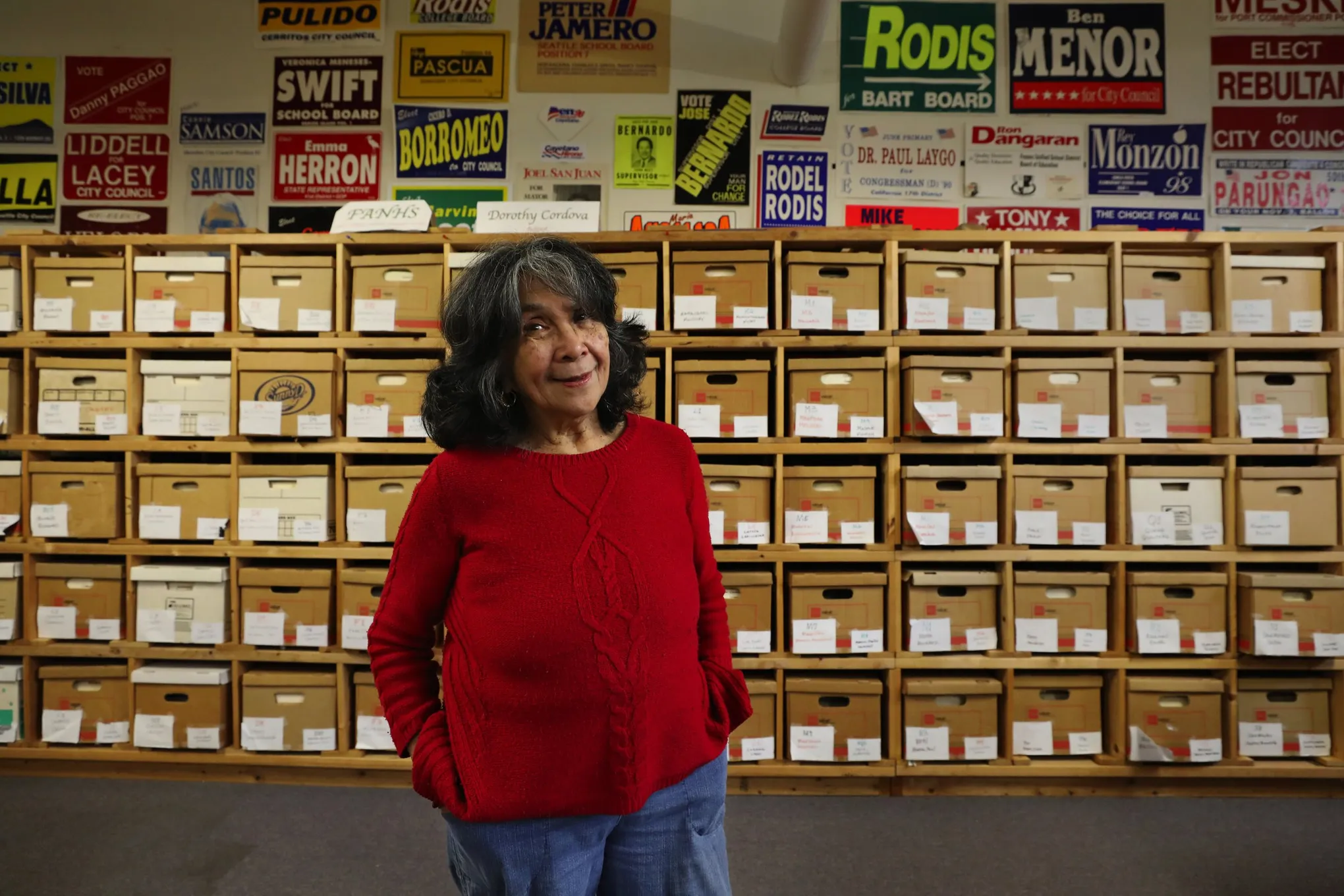Meet Our 2024 History Maker: Dr. Dorothy Laigo Cordova
- Katie Mcclure
- Nov 5, 2024
- 3 min read
Updated: Mar 26, 2025
Dr. Dorothy Laigo Cordova’s life is a remarkable story of resilience, leadership, and dedication to Filipino American heritage. Born in Seattle in 1932 to Filipino immigrant parents, Dorothy’s early life was marked by hardship and determination. Her father passed away when she was just four years old, leaving her mother to support the family through a small café and grocery store in Seattle’s International District. Growing up, Dorothy faced the challenges of being both Filipino and American at a time when cultural identities were often marginalized. These experiences fueled her lifelong commitment to celebrating and preserving Filipino American heritage.
Dorothy’s journey into activism and cultural preservation began during her college years at Seattle University, where she studied Sociology and met her future husband, the late Fred Cordova. Together, they became trailblazers for Filipino American identity. In 1957, they co-founded the Filipino Youth Activities (FYA) in Seattle, creating a space where Filipino American youth could connect with their culture. Through programs in soccer, folk dancing, and the iconic drill team, the FYA empowered young Filipino Americans to take pride in their heritage. In the 1960s and 70s, FYA was also instrumental in civil rights advocacy, pressing for bilingual teachers in Seattle Public Schools and for Filipino-trained doctors to be permitted to practice in the United States.
Dorothy’s impact extended far beyond Seattle. In the 1970s, she served as Director for the Demonstration Project for Asian Americans (DPAA), conducting pioneering research on the challenges Asian American communities faced. Through the DPAA, Dorothy led efforts to document Filipino American experiences, collecting oral histories and archiving materials that would later form the foundation of an even larger legacy.
In 1982, Dorothy and Fred established the Filipino American National Historical Society (FANHS), a nonprofit dedicated to preserving and sharing Filipino American history. FANHS was born out of frustration with the lack of accurate representation of Filipino Americans in mainstream history and has since grown to over 40 chapters across the United States. Dorothy has served as the Executive Director of FANHS for more than 40 years, volunteering her time to build one of the most extensive collections of Filipino American history in the world. Housed in Immaculate Conception Catholic Church in Seattle, FANHS’s National Pinoy Archives includes thousands of photographs, oral histories, and artifacts that document Filipino American life across the nation. The FANHS National Museum is located in Fred Cordova’s hometown of Stockton, California.
FANHS’s work under Dorothy’s leadership has been transformative. The society spearheaded the nationwide observance of Filipino American History Month every October, celebrating Filipino Americans’ contributions to the United States. FANHS also holds biennial national conferences, drawing scholars, students, and community members from across the country to learn about and celebrate Filipino American history.
At 92 years old, Dr. Cordova, affectionately known as “Auntie Dorothy,” continues to be a vibrant force at FANHS’s National Office. Despite announcing her intention to step back from her executive role, she remains a “Resident Researcher,” spending her days answering inquiries, guiding visitors, and sharing the wealth of knowledge she has gathered over decades. She is a mother to eight, grandmother to 17, and great-grandmother to 22, passing on her legacy of cultural pride to new generations.

The Rainier Valley Historical Society proudly honors Dr. Dorothy Laigo Cordova as our 2024 History Maker this year. Her lifelong dedication to cultural preservation and her pioneering efforts to uplift Filipino American heritage resonates deeply with our mission. Through her work, Dorothy has not only preserved Filipino American history but has also fostered a broader understanding of the rich, diverse fabric of American society. Her impact reaches far beyond Rainier Valley, reminding us of the power of history to unite, inspire, and strengthen communities.
Dr. Cordova’s story is a testament to the strength of immigrant communities and the importance of preserving diverse histories. We are deeply grateful for her contributions and thrilled to celebrate her as a History Maker, recognizing her incredible legacy and the lasting impact of her work on future generations.
.png)
















































